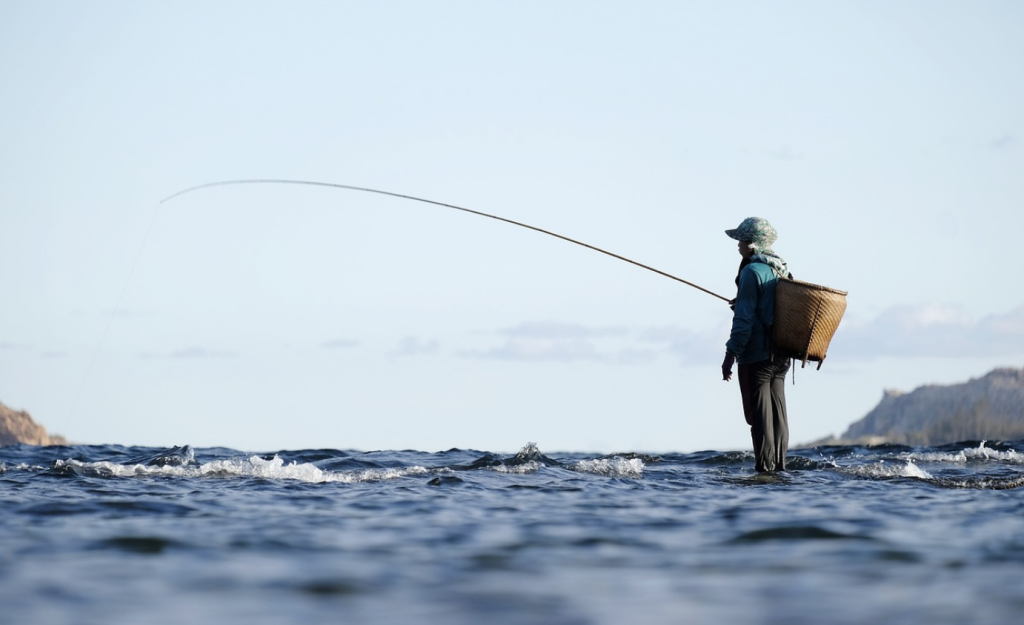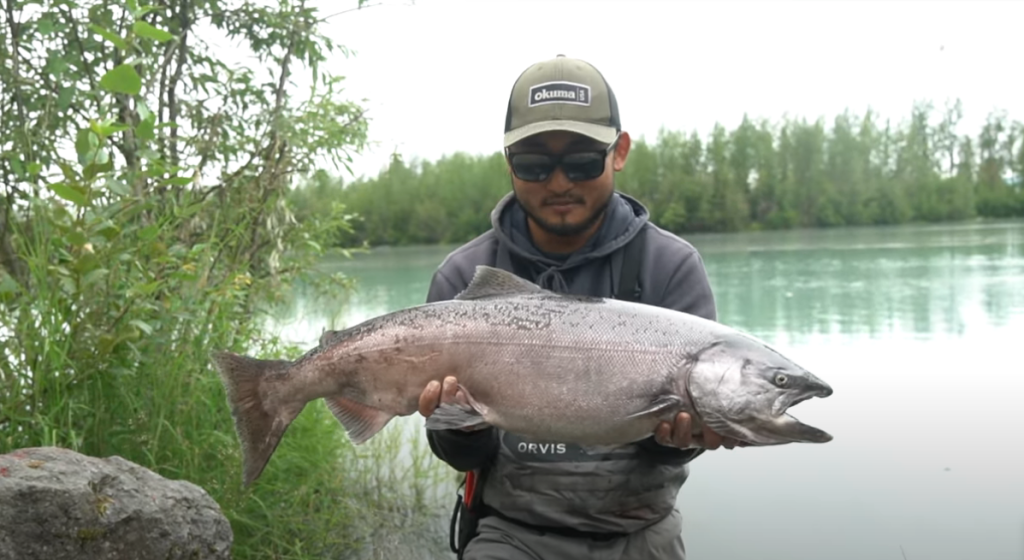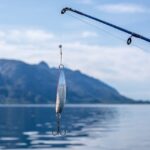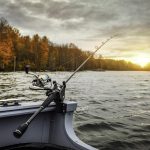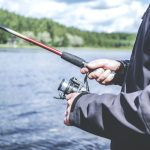All you need to fish is the right gear, a fishing license, and some knowledge. But, with the advancement in science, better and more complicated fishing equipment was developed. Today, we have a plethora of high-tech equipment in the hobby.
The sheer variety of choices can be daunting to a newbie andthe wrong equipment will screw up a day of fishing. Many new anglershave given up on the hobby after a couple of bad experiences. To enjoy fishing, the newbie angler must understand the equipment and other nuances of fishing.
A well-prepared newbie will have a confident and happy first outing. He will also learn a lot as his mind is not occupied elsewhere. Our ultimate fishing guide for first-time fishershas you covered. Read on to make your first fishing trip pleasurable and productive.
Choose the correct lure
Veteran fishermen always carry a large selection of lures with them. This is because a lure that did well during the last trip may prove to be useless this time around. The fishing success rate of a lure depends on the factors explained below:
- Color: Try to match the lure’s color to that of the water you are fishing in. Use a greenish lime-colored lure when fishing in green, algae-rich water; white or pearl in clear water; and brownish for water stained with tannins.
- Size and shape: Match the lure with the prey that your target fish is going after. If the fish are going after anchovies, the lure (often a small spoon) must resemble anchovies in size and looks.
Fishing Accessories
Fishing accessories include items such as tackle boxes, fishing rods, lures, reels, line, bait, hooks, weights, nets, and floats. Many of these items are necessary for a successful fishing experience. Other accessories such as fish finders, depth sounders, and waders can improve the angler’s chances of success. There are also many accessories designed to make the sport of fishing more convenient and enjoyable. These include items such as coolers, chairs, and umbrellas. Fishing accessories can range from simple items for the beginner to high-tech gear for the serious angler skinny water culture makes it simple to purchase
Match the size of the fishing gear with the target fish
Often newbie anglers are on the lookout for gear that suits several fishing scenarios. While that makes sense, it is difficult to get gear for all occasions. Seasoned fishermen often carry with them 2 or 3 types of gear to cover most scenarios. A heavy-duty marine rig cannot cast small lures effectively. Similarly, a four-pound-class ultralight used to cast micro jigs will not work for largemouth bass.
That is why it is important to know what you will find at a particular fishing spot and go prepared accordingly. An extra rig (spincast rigs are inexpensive) for unanticipated fishing scenarios like the veteran anglers will not hurt. It will ensure that your angling trip will not go wasted.
What fishing line to use
Like most fishing accessories you have numerous types and brands of fishing lines. For newbies, especially when fishing with lures, we recommend braid lines. Braid is extremely sensitive and has great hook-setting power. Monofilaments are recommended when fishing with baits. They stretch and yield to allow the fish to nibble on the bait.
Learn the basics required for fishing
Once you have got the equipment in place you need to brush up on other things like the following:
- Knots: Learn the basic 100% knots like the Palomar, Clinch, and Uni knots. Practice tying these knots until it becomes second nature to you.
- Casting: Casting allows you to present your lure or bait effectively to the fish you are trying to catch. To be a successful fisherman, you need to learn to cast well. Some reels like the spincast and spinning reels are easier to cast and hence, recommended for newbies.
A baitcast reel on the other hand is more difficult to cast but gives you more control. Expert anglers prefer this as a result. Practice casting and acquire some degree of competence in it before hitting the water.
- Etiquettes: All anglers must learn fishing etiquette early. These etiquettes allow you to fish sustainably and without being a nuisance to other fishermen. Here are some fishing etiquettes that we think are important.
– Do not crowd. Fish 50-60 feet away if in a crowded area and at least a couple of 100 yards in areas with fewer people.
– Practice catch and release. If fishing for the pot, don’t fish more than you can consume.
– Religiously stick to local fishing rules.
– Take back your trash.
– Use barbless hooks.
– Do not handle live fish with dry hands.
Learn to read the water
Expert fishermen can read the water and determine the best strategies to land the target species. With a little knowledge, you can also read the water and up your fishing game. Approach any waterbody slowly. Check the current and look for eddies and pools, especially in the shade. These are areas where the fish is likely to lurk. Like most animals, they like calmness and shade.
Know when to fish
Though you can catch fish at any time of the day, your chances of catching fish will be higher during their feeding time. Most fish feed in the dawn and the dusk. This is because fish tend to avoid direct sunlight. You will have good success any time of the day when there is a cloud cover.
Talk with other fishermen
Passionate anglers are a vast source of knowledge. Like all passionate people, they are happy to share their knowledge with others with the same passion. You can gather plenty of information about fishing spots, unique experiences, fishing gear review, new techniques, etc. This knowledge will take your fishing to the next level.
Expand your fishing options
Once you have learned the nuances of fishing, you will want to take your fishing game to the next level.You will also become confident enough to invest in more advanced fishing gear to enjoy a variety of fishing scenarios.You may want to take up saltwater fishing or even become a kayak fisherman
A kayak will take you to areas not accessible by foot. It will also give you the twin thrill of boating amidst serene nature and indulging in your favorite hobby. Sea fishing on the other hand is a whole new ball game altogether. It requires saltwater-resistant equipment that is durable enough to tackle large fish also know more about reef fishing charters in Australia.
Final thoughts
The above guide focuses mainly on fishing with lures and baits as this is howmost beginners start with. We aim to gradually ease you into this wonderful hobby. We want you to become a confident fisherman who challenges himself in different fishing scenarios. Always pay attention to safety. Inform friends and family about where you will fish and use protective gear every time. Many a happy fish trip has ended in disaster.
